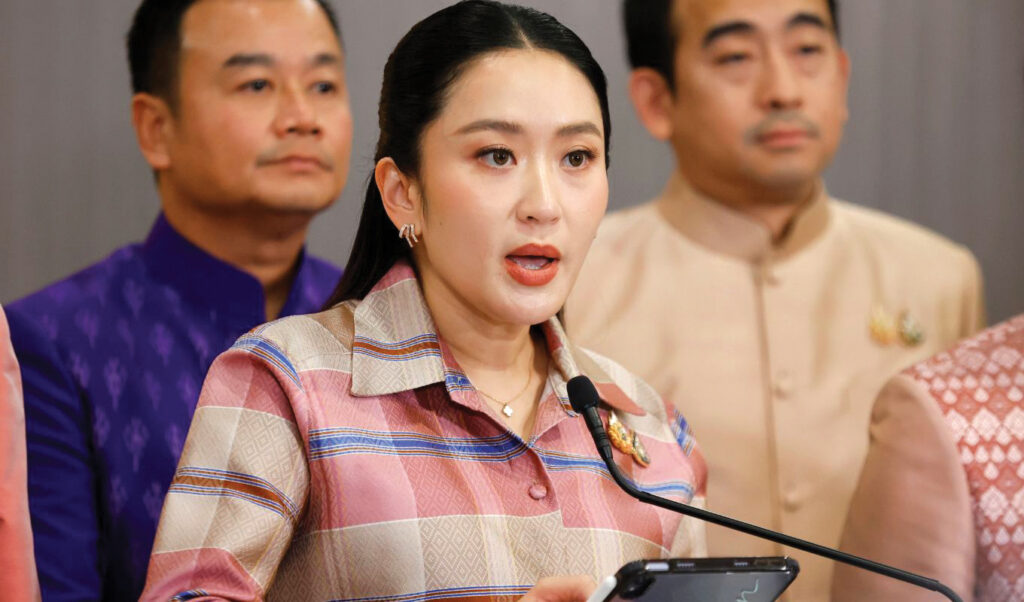Thailand’s Constitutional Court has suspended Prime Minister Paetongtarn Shinawatra, as political pressure mounts for her resignation following the leak of a phone conversation with former Cambodian Prime Minister Hun Sen.
Paetongtarn now has 15 days to submit her defense, as the Court examines a petition for her removal from office. In the controversial audio recording, the Prime Minister calls Hun Sen “uncle” and criticizes a Thai military commander, triggering intense reactions, particularly from conservative lawmakers who accuse her of undermining the military and national credibility.
She defended her intentions on Tuesday, stating: “I had no intention of doing it for personal gain. I was only thinking about how to avoid chaos, conflicts, and loss of human lives. If you listen carefully, you will understand that I had no bad intentions.”
The phone conversation appears to have concerned the old Thailand-Cambodia border dispute, which was reignited after the death of a Cambodian soldier in late May.
Thailand: Protests and political consequences
On Saturday afternoon (28/6), protesters gathered at the Victory Monument in Bangkok, demanding the Prime Minister’s resignation. Paetongtarn left the government building on Tuesday, July 1, just hours after the Court’s decision.
Despite her suspension, Shinawatra remains a member of the cabinet with a new role as Culture Minister, the result of a reshuffle approved just before she was removed from duties. The Deputy Prime Minister has temporarily assumed leadership duties of the government.
The governing coalition, already fragile, suffered a blow two weeks ago when a significant conservative ally withdrew.
Paetongtarn Shinawatra’s approval ratings fall
If Paetongtarn is removed, she will be the third Shinawatra family Prime Minister to lose power before completing their term. She would also be the second Pheu Thai party Prime Minister removed within a year.
The Court’s decision once again highlights its power as an institutional “cutter” of political authority, something critics consider a tool for neutralizing opponents. Since 2006, the Constitutional Court has dissolved 34 political parties, including the progressive Move Forward party, which won the 2023 elections but was prevented from forming a government.
Paetongtarn, 38, remains the country’s youngest leader and only the second woman to serve as Prime Minister after her aunt, Yingluck Shinawatra.
Already struggling to revitalize a weak economy, Paetongtarn saw her approval rating drop to 9.2% last weekend, down from 30.9% in March.
The court’s decision comes on the same day that Paetongtarn’s father, who was considered the driving force behind her government, faces his own political problems.
Thaksin, Thailand’s ousted leader, faces charges for insulting the monarchy in an interview he gave to a South Korean newspaper nine years ago. His trial began on Tuesday.
The controversial political leader, who returned to Thailand in 2023 after 15 years in exile, is the highest-profile figure to face charges under the country’s notorious lese majeste law.
Thaksin’s return was part of a major compromise between Pheu Thai and his former conservative enemies.
These include the military, which has overthrown two governments in coups, and groups close to the monarchy.




